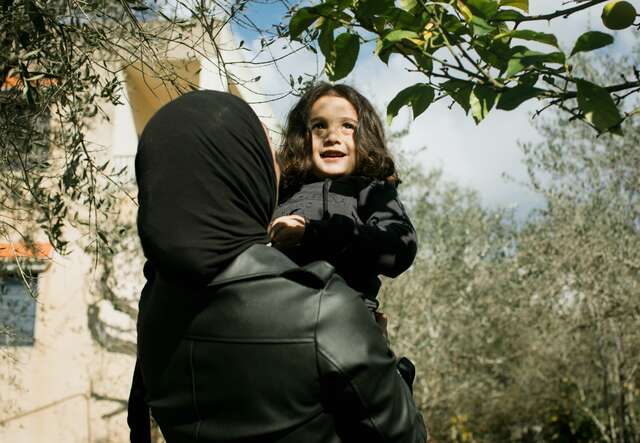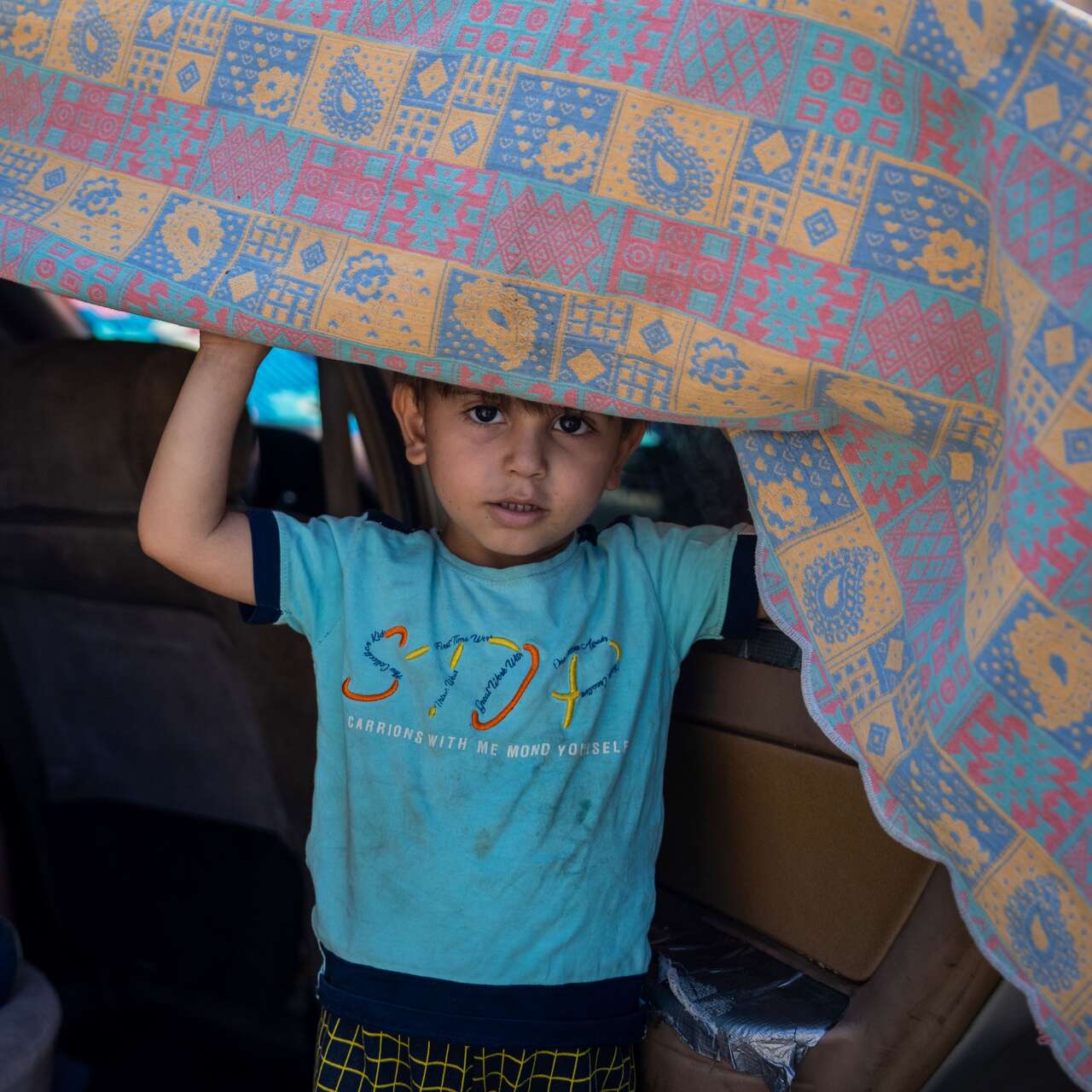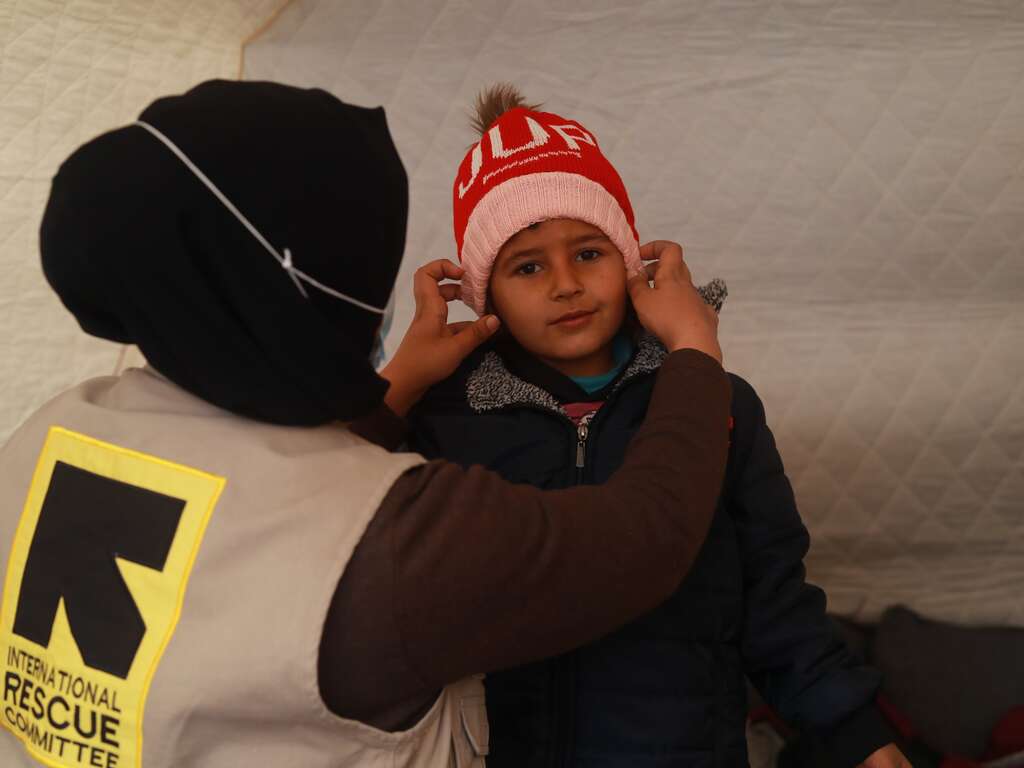Country facts
- Total population: 5.8 million
- People displaced by crisis: 1.5 million Syrians (1 in 4 people) and an estimated 489,292 Palestinian refugees
- Rank in Human Development Index: 109 out of 193
- Children out of School: 700,000
IRC response
- Started work in Lebanon: 2012
- People Assisted in 2023: 243,266
Lebanon is experiencing a severe economic crises and being impacted by the spillover effects of regional conflicts, all while hosting the most refugees per capita of any country in the world. The IRC is providing critical support to refugees in Lebanon and the communities that host them.
Lebanon hosts the highest number of refugees per capita in the world, most of whom have fled from Syria and the occupied Palestinian territory. In Lebanon, refugees are at increasing risk of violence, discrimination, legal restrictions and face difficult socio-economic challenges. The war in Gaza and its spillover to Lebanon have caused internal displacement and increased protection risks for civilians.
Since 2019, Lebanon has experienced a severe economic contraction. Inflation reached 172% in 2023 and the Lebanese pound lost a staggering 98% of its value. Coupled with the collapse of the banking sector and supply chain disruptions, a loss of purchasing power has contributed to a decline of the middle class, an increase in unemployment and poverty, and a rise in food insecurity.
Lebanon’s economic crisis is ranked by the World Bank as one of the top 10 most significant global crises since the mid-19th century.
Lebanon suffers from poor governance practices and systems. A political deadlock, government budgetary deficit and the devaluation of public servant wages has further hindered reforms and the provision of even the most basic services to communities.
An estimated 33 percent of the Lebanese population—and 90 percent of Syrian refugees—live in poverty. People are struggling to access basic needs and services, including food, electricity, healthcare and education. An estimated 3.4 million people need humanitarian assistance.
The most vulnerable communities—including refugees, women, children, LGBTQIA+ persons and people living with disabilities—face violence, exploitation, abuse, discrimination and legal barriers.
More than 700,000 children are out of school. The quality of education for those who can attend has declined due to insufficient funding, outdated curricula, overcrowded classrooms, poor infrastructure and teacher shortages.
Women and girls experience heightened marginalization, discrimination and unemployment.
Government offices and ministries are struggling to function with severely limited resources. Access to justice and legal services are increasingly out of reach, and social protection programs cannot meet the overwhelming needs of the people.
The IRC first began providing relief programs in Lebanon in 2012. Today, the IRC provides emergency and long-term support to people affected by, and recovering from, overlapping crises. We offer legal services, protection, education, mental and sexual and reproductive health, and economic support in Lebanon. We support all communities in need of assistance in Lebanon, including Syrian refugees who were forced to flee their homes in search of safety and the Lebanese communities hosting them.
The IRC is proud to partner with many national NGOs and collaborates with ministries and governmental entities to respond to needs.
Our areas of focus include:
Safety and power
The IRC is a leader in protection and works to safeguard Lebanon’s most vulnerable communities, partnering with local civil society and, where appropriate, local authorities to prevent and address abuse, neglect and exploitation of children. We deliver critical support to survivors of gender-based violence and implement programs to support women’s empowerment. The IRC counsels displaced persons on their legal rights, provides them with legal documentation and is a leader in securing justice for children.
To ensure everyone can live safely and with dignity, the IRC monitors trends affecting communities most at risk of harm and discrimination, including refugees, and responds to emerging needs. These trends shape our programs so they respond to actual needs on the ground and inform our advocacy efforts.
Education and early childhood development
The IRC is collaborating with government partners and local NGOs to ensure that children have access to high-quality education services and are safe from harm.
Across Lebanon, the IRC offers a range of education-focused programs and services, including community-based education, basic literacy and numeracy sessions, parenting sessions for caregivers, psychosocial support and recreational activities.
Health
The IRC established its Health program in Lebanon to address the severe impact of the multiple crises on the country’s already fragile healthcare system. Our health program improves inclusive and equitable access to healthcare for all people and supports healthcare facilities across the country.
In collaboration with the Ministry of Public Health (MoPH) and local partners, the IRC delivers health services through locally run Primary Health Care Centers (PHCCs). We also support community-based interventions, including malnutrition screenings and health awareness sessions, and provide mental health and psychosocial support.
Economic well-being
The IRC supports people affected by crisis as they rebuild their livelihoods and achieve economic resilience and stability. Our programs are community-driven and address both immediate needs and long-term development goals.
We provide livelihood support, including job counseling and up-skilling opportunities, to people seeking employment. Additionally, we provide entrepreneurship, financial literacy, marketing and development training for businesses as well as cash assistance to ensure people are able to meet their most basic needs.
Support the IRC's work
Donate now to help the IRC support children and families in Afghanistan and in crisis zones worldwide.
The IRC is consistently awarded top marks by charity watchdog groups for our efficient use of donor contributions and the effectiveness of our work. Read more reasons to give to the IRC.


